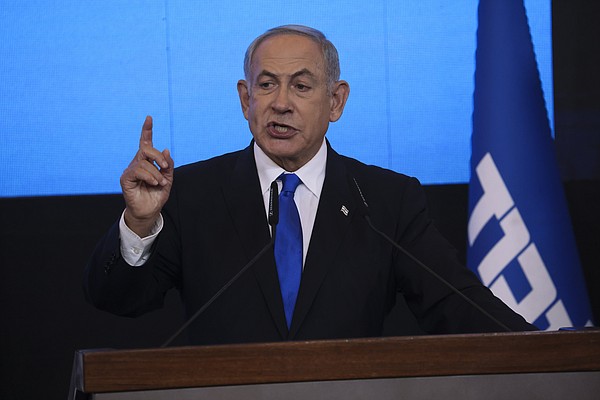JERUSALEM — Benjamin Netanyahu’s incoming hard-line Israeli government put West Bank settlement expansion at the top of its priority list on Wednesday, vowing to legalize dozens of illegally built outposts and annex the occupied territory as part of its coalition deal with ultranationalist allies.
The coalition agreements, released a day before the government is to be sworn into office, also included language endorsing discrimination against LGBTQ people on religious grounds, contentious judicial reforms, as well as generous stipends for ultra-Orthodox men who prefer to study instead of work.
The package laid the groundwork for what is expected to be a stormy beginning for the country’s most religious and right-wing government in history, potentially putting it at odds with large parts of the Israeli public, rankling Israel’s closest allies and escalating tensions with the Palestinians.
“What worries me the most is that these agreements change the democratic structure of what we know of as the state of Israel,” said Tomer Naor, chief legal officer of the Movement for Quality Government in Israel, a watchdog group. “One day we’ll all wake up and Netanyahu is not going to be prime minister, but some of these changes will be irreversible.”
The guidelines were led by a commitment to “advance and develop settlement in all parts of the land of Israel,” including “Judea and Samaria,” the biblical names for the West Bank.
Israel captured the West Bank in 1967 along with the Gaza Strip and east Jerusalem — territory the Palestinians seek for a future state. Israel has constructed dozens of Jewish settlements home to around 500,000 Israelis who live alongside around 2.5 million Palestinians.
Most of the international community considers Israel’s West Bank settlements illegal and an obstacle to peace with the Palestinians. The United States already has warned the incoming government against taking steps that could further undermine hopes for an independent Palestinian state.
In response to a request for comment, the Palestinian leadership emphasized that the Israeli-Palestinian conflict can be resolved only through the establishment of a Palestinian state with east Jerusalem as its capital.
Without a negotiated two-state solution, “there will be no peace, security or stability in the region,” said Nabil Abu Rdeneh, a spokesman for Palestinian President Mahmoud Abbas.
There was no immediate U.S. comment.
Netanyahu, who served 12 years as prime minister, is returning to power after he was ousted from office last year. His new government is made up of ultra-Orthodox parties, a far-right ultranationalist religious faction affiliated with the West Bank settler movement and his Likud party.
In the coalition agreement between Likud and its ally, the Religious Zionism party, Netanyahu pledged to legalize wildcat settlement outposts considered illegal even by the Israeli government. He also promises to annex the West Bank “while choosing the timing and considering the national and international interests of the state of Israel.”
Such a move would alienate much of the world, and give new fuel to critics who compare Israeli policies in the West Bank to apartheid South Africa.
The deal also grants favors to Itamar Ben-Gvir, a far-right politician who will be in charge of the national police force as the newly created national security minister.
It includes a commitment to expand and vastly increase government funding for the Israeli settlements in the divided West Bank city of Hebron, where a tiny ultranationalist Jewish community lives in heavily fortified neighborhoods amid tens of thousands of Palestinians. Ben-Gvir lives in a nearby settlement.
The agreement also includes a clause pledging to change the country’s anti-discrimination laws to allow businesses to refuse service to people “because of a religious belief.”
The legislation drew outrage earlier this week when members of Ben-Gvir’s party said the law could be used to deny services to LGBTQ people. Netanyahu has said he will not let the law pass, but nonetheless left the clause in the coalition agreement.
Among its other changes is placing Bezalel Smotrich, a settler leader who heads Religious Zionism party, in a newly created ministerial post overseeing West Bank settlement policy.
In an op-ed published in the Wall Street Journal, Smotrich said there would be no “changing the political or legal status” of the West Bank, indicating that annexation would not immediately take place.
Information for this article was contributed by Isabel DeBre of The Associated Press.



